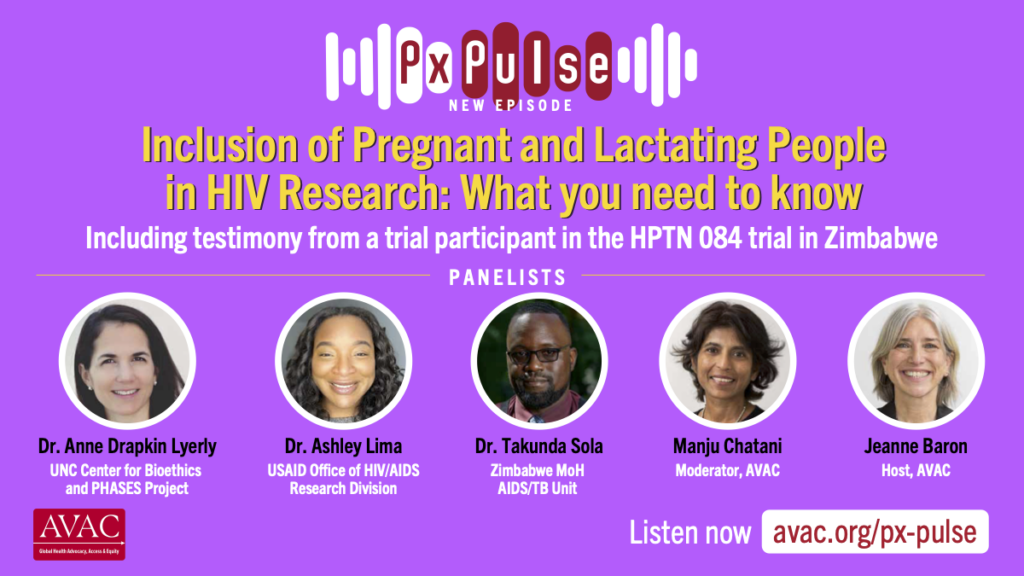Tuesday, November 28 at 7:00 AM ET
Moderator: Richard Muko, Regional Implementation Advocacy Manager, AVAC
Panelists: Joan Chamungu, Tanzanian Network of Women Living with HIV, Lawrence Khonyongwa, Malawi Network of People of Living with HIV, TBC, African Network of Youth Living with HIV, Annette Gaudino, Advocacy Coalition Manager, GAPP
Hosted by African Network of Youth Living with HIV (AY+), East African Network of AIDS Serving Organizations (EANNASO), Key Populations Trans-National Collaboration (KPTNC) and Coalition to build Momentum, Power, Activism, Strategy & Solidarity (COMPASS)
Join civil society organizations in PEPFAR recipient countries to discuss the status and political context of the current reauthorization and mobilize to call on the US Congress to recommit this life sustaining program. Bring your questions and please share this invitation widely in your relevant networks.
